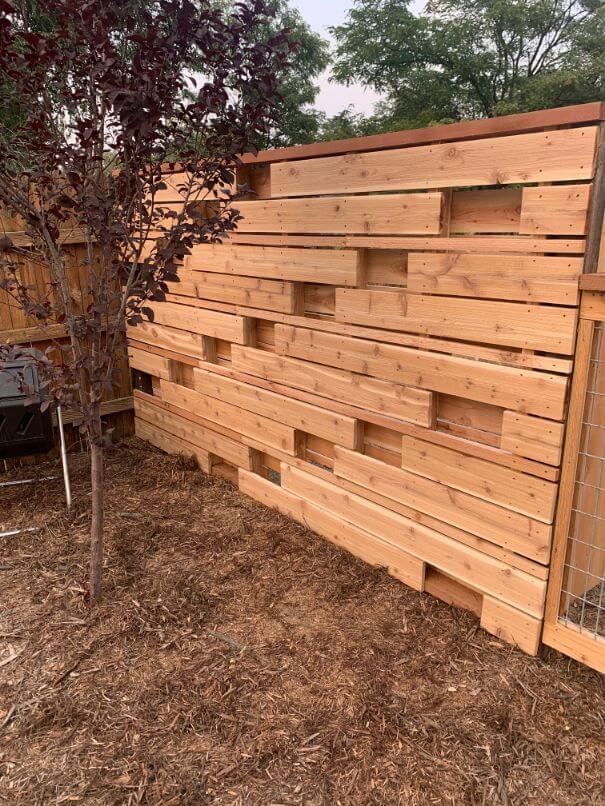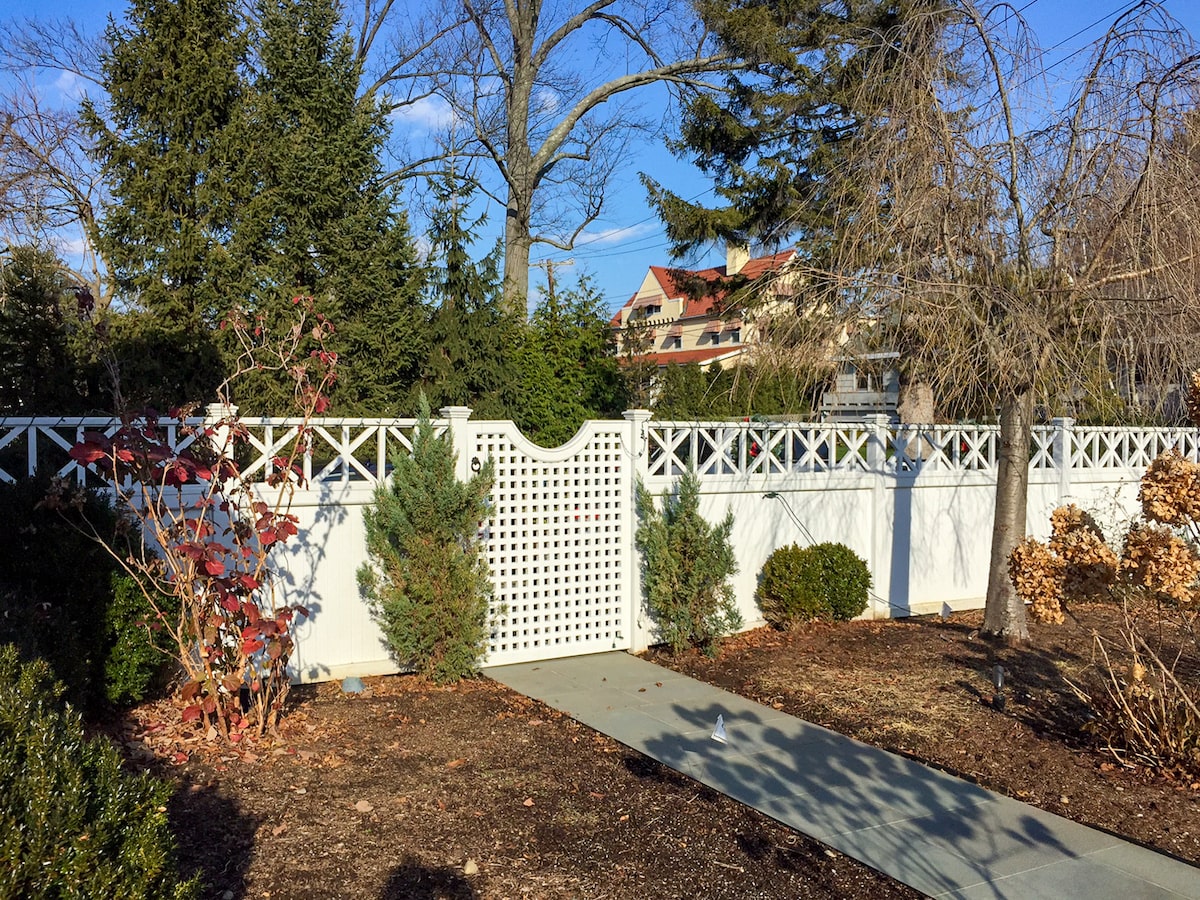All Categories
Featured
Recognizing the license requirements in your area is important if you're considering setting up a fence around your residential property. While constructing a fence might appear like a basic DIY task, several policies may govern its building relying on where you live. Stopping working to acquire the correct permits can lead to penalties, fines, or also having to get rid of the fencing altogether. In this overview, we'll damage down the various authorizations you may need to set up a fencing and how to ensure your project remains certified with regional regulations.
Why Are Allows Essential for Fencing Installation? Licenses are needed to guarantee that the fencing you develop adheres to regional building ordinance, zoning regulations, and safety criteria. These permits remain in place to protect your building, the buildings around you, and the atmosphere. They guarantee that the fence won't block energies, website traffic flow, or develop threats for pedestrians. Additionally, they help maintain the aesthetic and structural stability of your neighborhood.
![]()
Kinds Of Permits You May Demand. Building Authorization. A building permit is the most common demand for installing a fence. If your fencing surpasses a specific height (generally around 6 feet), you may require to get a structure license.
Zoning License. A zoning license ensures that your fencing abides with these laws. Your fence may require to be set back a specific range from walkways or home lines.
Homeowners Organization (HOA) Authorization. You might need authorization before installing a fence if your residential property is part of a property owners association. HOAs often have strict guidelines regarding the kind, style, and products utilized for fences to preserve an uniform look throughout the community. The HOA might require you to send in-depth strategies or demand authorization prior to installation. See to it you comply with these guidelines to avoid prospective fines or charges.
Specialized Permits. In many cases, you might require specialized permits based on the place of your property or the nature of your fence. If your property is in a flood area, you might require extra permits to make sure that your fencing does not block drain or water circulation. Likewise, if you prepare to develop a fence near an environmentally safeguarded location, you might require an unique license to follow ecological laws.
![]()
Utility Easements and Utility Firm Authorizations. Before setting up a fence, you should check if your building has an easement. Developing a fencing within an easement could interfere with energy upkeep or damages underground lines.
Just How to Figure Out Which Allows You Required. Talk To Regional Authorities. The initial step in determining the licenses called for is to call your regional building department or zoning workplace. They can offer certain details concerning what permits are essential for your location. Many cities have on-line sources or portals where you can inspect the needs or perhaps get a license online.
Seek Advice From an Expert Fence Specialist. A regional fence professional is typically accustomed to the authorization procedure and local guidelines. They can assist you browse the requirements and make certain that your project is compliant. Many professionals likewise deal with the permit application process on your behalf, saving you effort and time.
Review Your Area's HOA Standards. If you reside in an area governed by an HOA, make certain to assess their standards before using for any permits. The HOA may call for details styles, materials, or height constraints for fencings within the area. Send your strategies to them for authorization prior to proceeding.
![]()
Repercussions of Not Obtaining a License. Setting up a fencing without the required licenses can result in severe repercussions. You might deal with fines, be gotten to get rid of the fence, or be needed to redo the installation to satisfy code requirements. On top of that, marketing your home could be made complex if the fence does not fulfill neighborhood policies. Possible customers might think twice to purchase a property with an unpermitted fencing, especially if it remains in violation of zoning laws.
Conclusion. Prior to installing a fence on your building, make certain you recognize the regional guidelines and acquire any type of necessary authorizations. Structure authorizations, zoning authorizations, HOA authorizations, and specialized permits all play an important role in making sure that your fence is secure, lawful, and certified. Making the effort to research and secure the suitable authorizations will conserve you from costly errors and potential legal issues in the future. Whether you're preparing a privacy fence or an attractive border, complying with these steps will help make the installment procedure smooth and problem-free.
Why Are Allows Essential for Fencing Installation? Licenses are needed to guarantee that the fencing you develop adheres to regional building ordinance, zoning regulations, and safety criteria. These permits remain in place to protect your building, the buildings around you, and the atmosphere. They guarantee that the fence won't block energies, website traffic flow, or develop threats for pedestrians. Additionally, they help maintain the aesthetic and structural stability of your neighborhood.

Kinds Of Permits You May Demand. Building Authorization. A building permit is the most common demand for installing a fence. If your fencing surpasses a specific height (generally around 6 feet), you may require to get a structure license.
Zoning License. A zoning license ensures that your fencing abides with these laws. Your fence may require to be set back a specific range from walkways or home lines.
Homeowners Organization (HOA) Authorization. You might need authorization before installing a fence if your residential property is part of a property owners association. HOAs often have strict guidelines regarding the kind, style, and products utilized for fences to preserve an uniform look throughout the community. The HOA might require you to send in-depth strategies or demand authorization prior to installation. See to it you comply with these guidelines to avoid prospective fines or charges.
Specialized Permits. In many cases, you might require specialized permits based on the place of your property or the nature of your fence. If your property is in a flood area, you might require extra permits to make sure that your fencing does not block drain or water circulation. Likewise, if you prepare to develop a fence near an environmentally safeguarded location, you might require an unique license to follow ecological laws.

Utility Easements and Utility Firm Authorizations. Before setting up a fence, you should check if your building has an easement. Developing a fencing within an easement could interfere with energy upkeep or damages underground lines.
Just How to Figure Out Which Allows You Required. Talk To Regional Authorities. The initial step in determining the licenses called for is to call your regional building department or zoning workplace. They can offer certain details concerning what permits are essential for your location. Many cities have on-line sources or portals where you can inspect the needs or perhaps get a license online.
Seek Advice From an Expert Fence Specialist. A regional fence professional is typically accustomed to the authorization procedure and local guidelines. They can assist you browse the requirements and make certain that your project is compliant. Many professionals likewise deal with the permit application process on your behalf, saving you effort and time.
Review Your Area's HOA Standards. If you reside in an area governed by an HOA, make certain to assess their standards before using for any permits. The HOA may call for details styles, materials, or height constraints for fencings within the area. Send your strategies to them for authorization prior to proceeding.

Repercussions of Not Obtaining a License. Setting up a fencing without the required licenses can result in severe repercussions. You might deal with fines, be gotten to get rid of the fence, or be needed to redo the installation to satisfy code requirements. On top of that, marketing your home could be made complex if the fence does not fulfill neighborhood policies. Possible customers might think twice to purchase a property with an unpermitted fencing, especially if it remains in violation of zoning laws.
Conclusion. Prior to installing a fence on your building, make certain you recognize the regional guidelines and acquire any type of necessary authorizations. Structure authorizations, zoning authorizations, HOA authorizations, and specialized permits all play an important role in making sure that your fence is secure, lawful, and certified. Making the effort to research and secure the suitable authorizations will conserve you from costly errors and potential legal issues in the future. Whether you're preparing a privacy fence or an attractive border, complying with these steps will help make the installment procedure smooth and problem-free.
Latest Posts
What Permits Are Needed for Installing a Surround My Location?
Published Dec 20, 24
0 min read
Why WyHy Credit Union is the Right Choice for You
Published Dec 20, 24
1 min read
Exactly How to Maximize the Lifespan of Your Auto Battery
Published Dec 20, 24
0 min read